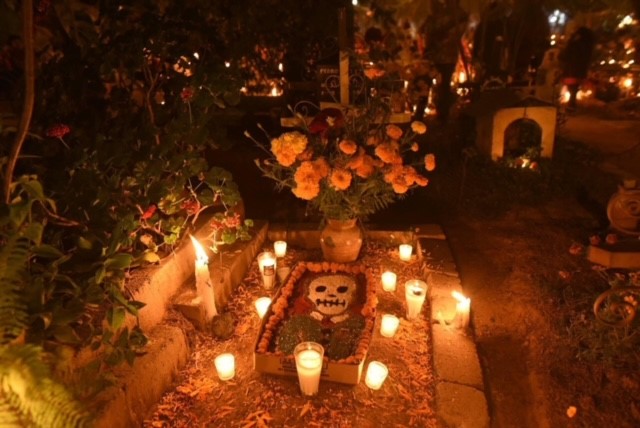I may be ghoulish, but I think not. I am quite interested in talking about death and dying. I’m the daughter of a former hospice nurse, a former student of a high school teacher who spent an entire term teaching about death and dying as part of a world religions class, and was a nine-year old child the first time I encountered death up-close and personal. I’ve grown comfortable and stayed curious talking about death and dying and my work as a trusts and estates professional continues to prompt me to ask: how do we talk about the universal experience of death and dying with in a ways that assist them with their planning and preparations.
It is a difficult terrain for many people to discuss, and the discomfort around discussions of death and dying can have disastrous effects – enormous tax consequences, family feuds, instability for dependants, business interruption, exacerbated or complicated grief are a few consequences to come to mind. If we educate ourselves, I think we stand a better chance of supporting clients with planning and problem prevention, whether we are working with clients from a legal perspective, financial planning, social work, care provision or otherwise.
So what can we do as professionals to assist ourselves and our clients become more comfortable with the terrain of death and dying? Get curious, and get out there and explore!
There is an incredibly thoughtful and thought-provoking exhibit at the Royal Ontario Museum, for those of you in or visiting Toronto before April 7, 2024. “Death: Life’s Greatest Mystery” takes visitors through artifacts, specimens and interactive media to explore the big questions many of us have “What happens to my body when I die? What happens to my ‘self’, transitioning from the biological to the spiritual understandings of death from throughout history and across different religions and cultures. I’m not suggesting that you take your clients to this exhibit as a preface to the ‘what do you want to do with your Royal Doulton collection’ conversation, but for those with curiosity about how these big questions are explored the exhibit is well worth a trip to the ROM. Beyond Death: Beliefs, Practice and Material Expression[i], is available in the gift shop and is a beautiful text taking the exploration of the questions provoked by the ROM exhibit.
The internet, of course, is a fertile repository of resources and some that have come to my attention may be of use for you and your clients:
The U.S. based “When You Die Project”[ii], is a resource-rich site exploring questions about what the dying process entails: hospice care, practical guidance for end-of-life planning, reading materials, podcasts, films, books and more. The project is given voice by physicians, researchers, spiritual leaders, artists, comedians, death doulas and the bereaved. Amongst the resources found on the When You Die website are three documentaries: In the Realm of Death & Dreaming, Saying Goodbye: Preparing for Death and Architecture of Death: The Inner World of Dying. The films can be rented from Canada at low cost. The site has a extensive list of books (both audio, digital and the old fashioned kind) – to guide us in exploring death, dying and grief.
What is a death doula you ask? Also known as “end-of-life” doulas, death doulas are trained professionals who support a person, and their families, though the dying process.[iii] Often trained as physicians, nurses and social workers, end-of-life doulas have a growing presence within the Canadian hospice and palliative care systems, and there are recommended training programs at Douglas College in British Columbia and Durham College in Ontario, as well as several other programs for training across the country. Doulas work within the palliative care system, long term care system, and elsewhere throughout the health care system.
The Canadian-based “LivingOutLoud.Life”[iv] is also a repository of resources for teens coping with advances illnesses, tackling topics such as relationships, daily life, decision making and sex and fertility. The resources have a particular focus on support for teens and young adults, but have much to offer all of us, young or not-so-young. LivingOutLoud.Life is an initiative of the Canadian Virtual Hospice, which is in turn an organization that provides support and personalized information about advanced illness, palliative care, loss and grief.[v]
Difficult terrain, death and dying, but one for which there are amazing, thoughtful resources to be found with little effort. If you have a go-to resource that you’d recommend, please add a link in the comments.
Jane Martin
Estate and Trust Consultant Team Lead, Scotiatrust
[i] Edited by Patrick Ryan Williams, Gary M. Feinman, and Luis Muro Ynonan (Oxford: Bar Publishing, 2022).
[iii] https://endoflifedoulaassociation.org/
[iv] https://livingoutloud.life/
[v] https://www.virtualhospice.ca/en_US/Main+Site+Navigation/Home.aspx


0 Comments